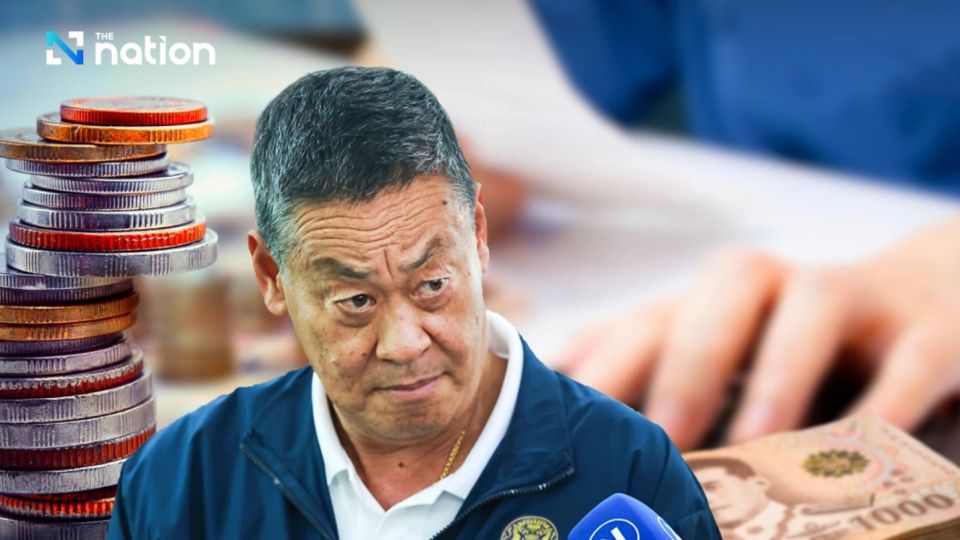July 17, 2024
BANGKOK – At Monday’s meeting of the economic cabinet, PM Srettha Thavisin outlined strategies to address household debt and restore economic confidence. He proposed the Bank of Thailand reduce the minimum credit card repayment rate and said he was planning discussions with financial institutions to extend housing debt terms and find measures to solve the issue of repossessed vehicles. Acknowledging that debt resolution is complex, he emphasised the need for unconventional measures.
Household debt is a major issue for the Thai economy, currently standing at 13.6 trillion baht, or 90% of GDP, affecting consumer purchasing power and the overall economy. Combined with business debt, especially for SMEs, this issue becomes increasingly difficult to resolve.
Deputy Prime Minister and Finance Minister Phichai Chunhawachira stated after the meeting that the economic downturn and unclear recovery signals are concerning, particularly household and SME debts, with household NPLs now totalling over 1 trillion baht and special mention debts (SM) rising fast.
The Prime Minister issued numerous directives to address these issues.
“Half of the public debt is from housing and car loans, followed by credit card and consumer debt. Addressing public debt is crucial as it boosts economic confidence. If government debt increases slightly but public debt decreases, this is acceptable,” he said.
Given the rapid increase in credit card debt, the Bank of Thailand was asked to consider reducing the minimum credit card repayment rate back to 5%, from the current 8%, due to the financial difficulties faced by the public. Financial discipline can be addressed later.
Current credit card loans stand at around 24 million, with over 1.1 million cards overdue by more than 90 days, classified as bad debt (NPL), and an additional 200,000 cards nearing default. Credit card debt carries high interest rates.
Efforts have been made to assist credit card debtors through the Debt Clinic programme by Sukhumvit Asset Management Company (SAM), stopping further debt accumulation and extending repayment periods.
“The Ministry of Finance and the Bank of Thailand should collaborate with major credit card companies to rejoin the programme, as it would benefit both customers and companies in the long run,” said Phichai.
For real estate debt, the Government Housing Bank (GH Bank), which accounts for 34% of total housing loans, has offered debt restructuring for 80,000 households struggling with repayment. This includes extending repayment periods up to 80-85 years to reduce monthly payments, with over 50,000 participants signing up for the scheme so far.
The Bank of Thailand was asked to discuss with commercial banks the possibility of extending housing loan repayment periods, as houses are appreciating assets.
“Debt restructuring is expected to reduce NPL ratios for banks, prevent bad debtor records, and turn them back into good customers, benefiting the overall economy,” Pichai added.
Regarding vehicle debt, particularly for pickup trucks and motorcycles considered essential to livelihoods, increasing defaults and shrinking new car loans due to higher risks are concerning. Relevant parties will be summoned to report their solutions at next week’s meeting.
The Ministry of Finance is tasked with addressing the debt issues of the Student Loan Fund (SLF), especially recalculating debts according to new laws. Currently, 170,000 individuals have overpaid, totalling 2.1 billion baht, which the government will promptly refund. Another 2 million are having their debts recalculated, amounting to 54 billion baht.
The Interior and Finance ministries have registered informal debts with the aim of integrating them into the formal system. The finance ministry is to develop various out-of-the-box solutions to address these systemic debts, with clearer results expected soon.
Government spokesman Chai Wachirong added that the Prime Minister directed the Bank of Thailand to work with commercial banks to establish concrete credit card debt solutions within two weeks and inform the public accordingly.
In terms of informal debt resolution, the PM assigned Phichai to work with Deputy Interior Minister Chada Thaiseth to bring informal debts into the formal system, similar to the PICO Finance approach, by licensing informal creditors who wish to transition to the formal system.


